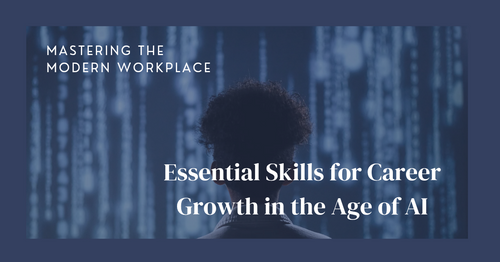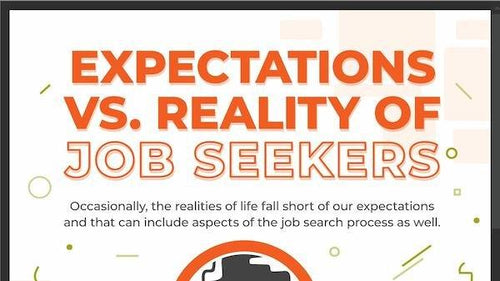
Are Your Work Skills Up To Date?
College degrees aren’t the powerhouse of a resume they once were. College graduation is a requirement for getting a well-paying job, but college doesn’t seem to give us all the minimum requirements to obtain a job in our career field. Skills to succeed in college don’t necessarily translate to a successful career. Companies are looking for skilled, analytical, and dedicated applicants to fill the ranks.
It is too easy to feel our resumes aren’t adequate the longer our job search continues. There is good news, though. You can learn skills to boost your resume and shoot to the top of applicant shortlists. The skills to obtain a high-paying job don’t always require a college degree either.
Here are some skills you can learn before the end of the year.

This blog contains affiliate links, meaning I may receive a small commission (at no cost to you) if you subscribe or buy something through the links I share. I only share links to products or services that I use myself or absolutely love!
Basic Coding
Coding is often incorrectly stereotyped. Coding is a skill anyone can learn. There are countless ways to learn how to code without going to college and getting a new degree. Businesses around the world require coders to keep their business functioning. Code isn’t exclusive to operating a website and running apps. Code is useful for internal procedures as well.
HTML and JavaScript are good places to start. HTML (HyperText Markup Language) is a common language for web pages. A basic understanding of HTML is useful to bloggers or companies that want to be found by search engines. HTML is a good place to start to get an understanding of the core elements of coding. You can learn to code for free through books, videos, and online tutorials.
Analytical Skills
Another hard skill capable of lifting your resume to the top of the applicant pile is analytical skills. Too often, we rely on gut feelings or visible trends. There is too much data produced to continue relying on what is clearly visible. Data analytics are key to boosting efficiencies in all businesses. The correlation between seemingly unrelated products often hides in the mountains of data. The most profitable companies rely on data to aid their decisions. Knowing how to collect data and analyze trends can boost your chances of promotion.
Data comes in all forms. Surveys are a useful tool for understanding what the consumer wants, but they are less influential than what the consumer actually purchases. There is a reason you’re asked to create an account to make a purchase. Companies want to collect data about your purchases. Data science transformed the way grocery stores are organized. So-called memberships are actually tools to collect data and determine customer habits. For example, if a company notices a customer is buying cereal, but not milk, there might be issues with milk at a particular store. Grocery stores are using this data to change their offerings to meet the demands of their customers. There is a reason we see ads for Cheerios next to the baby food.
Communication Skills
Not all skills are technical skills or measurable by an aptitude test. Communication can make or break a company. Appropriate communication is often overlooked when thinking about employable skills. During the application process, and on any application documents, be sure to use concise language, proper grammar, and a respectful tone. The little things often carry us further than a hard skill.
Communication goes beyond the words we say. How we speak is important, but so are the things we don’t say. Non-verbal communication, like body language, plays a factor in how we are perceived. Make sure to clearly list communication skills on your resume.
Always Keep Your Resume Updated
It is always good practice to keep your resume up-to-date, even if you aren’t looking for a job. Most positions offer resources to learn new skills on the job. You can use new skills to get a promotion with your current company or look for a new job that better aligns with your career goals. There are plenty of reasons for leaving a job. Consumers and investors are beginning to consider the ethics of the companies they endorse. Professionals are starting to band together to stop their company from unethical practices that further inequality. Finding a company that matches your moral code could be a boost to your morale.
Conclusion
We are constantly learning new things without knowing it. Very few jobs are static. As we progress through our careers, we learn new things without paying much attention to what we are learning. Keeping track of skills you learn is a good way to keep your resume up-to-date.
Related Articles
-

10 LinkedIn Mistakes That Cost Job Seekers Interviews (How to Fix It)
Guest blogger outlines how to avoid these LinkedIn mistakes to drastically improve your chances of being noticed, whether you’re actively job hunting or just trying to grow your professional presence.
-

Guide To Choosing A Career In SaaS
Thinking about a career in SaaS? Guest blogger Jacob Wickett shares top roles, key skills, and how to break into this fast-growing industry.
-

Mastering the Modern Workplace: Essential Skills for Career Growth in the Age of AI
Guest blogger Sadie Smith shares a comprehensive guide to help professionals navigate unprecedented changes driven by technological advancement with confidence.
-

Navigating Your Career Path with a Family Nurse Practitioner Degree Program
Guest blogger Sadie Smith reveals how strategic planning in your healthcare career broadens your impact on patient care and community health.
-

Career Transitions: Navigating Your Path to Success in Healthcare and Beyond
Guest blogger Sadie Smith shares how to leverage your existing skills and experience while pursuing new career opportunities in healthcare and other industries.
-

Breaking Barriers: A Guide to Empowering Women in Manufacturing Leadership
Guest contributor Sadie Smith shares this comprehensive guide on how women can reshape the manufacturing industry landscape with actionable insights.
-

Navigating An Evolving Job Market With Strategies For Success
To thrive in a dynamic job market, you need to continuously adapt your job search strategies. Stay informed and flexible to position yourself for success.
-

4 Personal Assistant Interview Questions and Answers
Guest blogger Liza Griffen, co-founder of Tyler Griffen, equips you with a deep understanding of typical interview questions and practical answers to help you showcase your skills effectively whether you're aiming to impress in your first personal assistant role or looking to step up in your career.
-

Crack Your Dream Company Interview
Guest contributor Nandkishore Rathi shares practical tips, strategies, and insightful advice from career experts to help you shine during written and verbal interviews.
-

Exploring The Realities Of Job Hunting (Infographic)
Guest contributor Joseph Matalone delves into common expectations in job seeking and the contrasting realities.
-

Don't Panic: 15 Ways To Prepare For A Video Interview
Guest blogger Daniel Boyce with Aware Recruiter delves into 15 actionable steps to prepare you for a stellar video interview experience whether you're a seasoned professional or just stepping into the job market.
-

5 Signs That A Company Values Employee Wellness And Safety
Guest blogger Sharon Feldman shares how asking questions about wellness and safety in your interview could give you insight into a company’s values.
-

Can An Employer Fire You For Being Sick?
Many employers can terminate an employee for falling sick frequently. Guest blogger Natalie Padilla shares all you need to know regarding being fired by an employer.
-

Tips On Building A Positive And Supportive Workplace
Guest blogger Adam Blacksmith shares how to embrace communication, celebrate diversity, and empower your team for success by fostering a positive and supportive workplace culture.
-

AI: Transforming Networking, Interviews, and Careers
Guest Author, Dean Fankhauiser. discusses how AI is revolutionizing networking, interviewing, career planning, and professional advancement.
-

Preparing for Different Interview Formats: Phone, Video, and In-Person
Interview Coach Ellie Hoekman shares specific preparation steps for phone, video, and in-person interviews.
-

Negotiating A Competitive Salary
Guest blogger Rohan Singh shares strategies for negotiating a fair salary that reflects your worth and fulfills your goals.
-

Can My Employer Ask Why I’m Taking A Sick Day?
Guest blogger Samantha Larson shares whether your employer has the right to ask you why you are sick and how much information they are entitled to when you take a sick day at work.
-

The Benefits of Coaching in the Workplace
Guest blogger, William Powell, shares some of the concrete examples of the benefits associated with employee coaching.
-

10 Facts & Stats About Sexual Harassment in the Workplace
Guest blogger Sharon Feldman shares how many people experience harassment every day, including at their place of work, to increase awareness.
-

The Ultimate Temping Guide for Beginners
Guest blogger Auria Heanley with Oriel Partners shares insight into what a temp job is and what to expect in order to make the most of a new job opportunity.
-

High Paying Career Paths After Learning Python
Guest blogger Rose Young with Codebasics.io shares some of the promising career paths you can explore after learning Python programming.
-

How To Ace Your Interview With A Staffing Agency
Guest blogger William Powell shares how to prepare adequately for an interview with a recruiting agency to increase your chances of landing your dream job.
-

How Do You Know When It's Time To Quit Your Job?
Guest blogger Katie Meyers shares when quitting your job is the right thing and how to go about it.
-

5 Things You Need To Know About Job Interviews To Succeed
Guest blogger Marcus Ralph shares 5 tips on what you can do before a job interview to be best prepared to make a solid first impression and land the job.
-

Know Your Worth and Add Tax: How To Effectively Negotiate Your Salary
Guest blogger Jeffrey Cassells with Shegerian Law advises that it's time to learn how to negotiate strategically and not settle for being underpaid, whether you're at your first or fifth job.



























